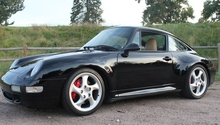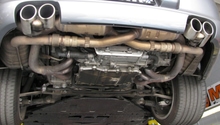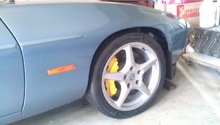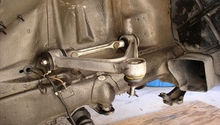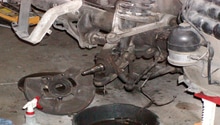Porsche 928: Why is My Car Vibrating?
Sometimes, shaking it is the right thing to do. But for a sports car? No, not at all. This article will help you pinpoint the reasons why your Porsche 928 might be vibrating.
This article applies to the Porsche 928 (1978-1995).
Your car should be vibrating with the efficient hum of its engine, or possibly transmitting important road surface information to you via the steering wheel. What it should not be doing is wobbling around like a ceiling fan with a cat clinging to one blade. Here are a few simple things you can do to diagnose and stop the vibration.

Materials Needed
- Eyes and ears
- Multimeter
- Code scanner
- Jack and jack stands
The first step in diagnosing your unwanted vibration is to narrow down the possible sources.
Situation 1 – Car vibrates at all speeds
If your car vibrates at all speeds, the problem is likely with the tires, wheels, suspension, or assorted hardware. Be very careful driving your car in this condition. In fact, it's best if you don't drive it at all.
This issue could be something as simple as a tire that has chewing gum stuck to it, to as complicated as a bad axle or wheel hub. Visually inspect wheels and tires for any irregularities. Do you have good tread on all four tires? Do some of them have peculiar wear patterns that might indicate bad alignment or other suspension issue?
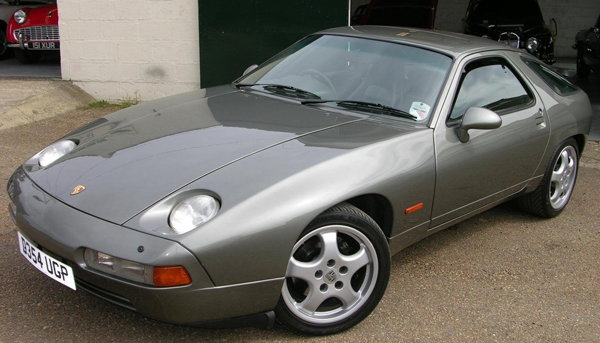
If you have a jack and jack stands, you can try lifting the car to get the wheels to spin freely. Do you notice any runout (wobble)? When you give the wheel and tire a good shake while the car is in the air, are there any noises that might indicate a suspension issue? Clunks, clicks, and clanks are all bad news.
Because of the need for specialized tools to aid in mounting tires and setting up suspension, you're probably going to want to get to a tire shop to fully diagnose this issue. You may just need an alignment or new tires. You might have some bent or worn components. An expert can tell you for sure.
Related Articles
- How to Change a Tire - Rennlist.com
- How to Align Your Tires - Rennlist.com
- Why Are My Tires Wearing Unevenly? - Rennlist.com
Situation 2 – Car vibrates under braking
The most likely cause of vibration under braking is the brake rotors. Technically, this vibration is often caused by uneven deposits of braking material from the pads onto the rotor. It is not actual warping of the rotors, but a lot of people refer to the problem as "warped brake rotors."
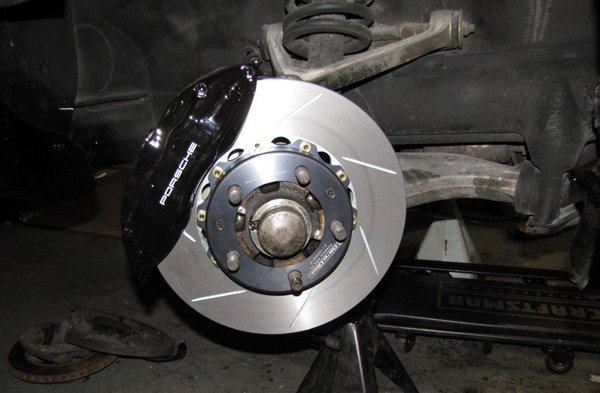
Brake rotors are a part that wear out under normal use, so be sure to check them. If your wheels permit it, you can visually inspect the surface of your brake rotors for gross deposits. Your rotors surfaces should be smooth, and with a dull sheen. There may be some concentric scratches from normal use, but if the surface looks irregular or otherwise not uniform, it's a good bet that your rotors need some attention.
(Related Article: How to Replace Brake Pads/Calipers/Rotors - Rennlist.com)
Situation 3 – Car vibrates when revving
Do you have vibration when you rev the engine? If so, the problem could be anything from a faulty flywheel, bad fuel, low charge, faulty distributor, or a host of other problems. Use your multimeter to check that your battery has charge, and that the system has charge when the car is running. If your battery has charge but the voltage is low, you have lost or about to lose your alternator.
Remember that the alternator and battery have a damaging relationship. If one goes, the other is likely to crap out. So, you might find yourself replacing both.
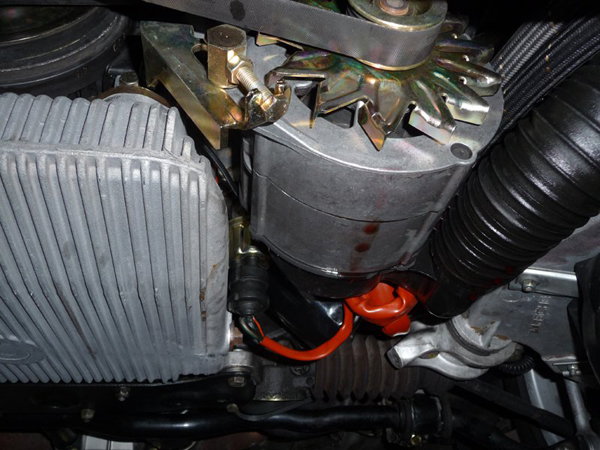
Situation 4 – Other causes
Next, check for continuity on your spark plug wires. They should be moving spark freely. Have a look at your air filter, and make sure it is free of any kind of blockage. Visually inspect any ducts leading from your intake to the engine. A hole or crack here could cause the motor to be confused about how to set the AFR (air fuel ratio) which can cause rough running.
If all those areas look good but you're still getting unwanted vibration, now is a good time to use a code scanner, or see someone who has one. You might also have some worn bushings or other mounts, which can cause vibration.
If you get vibration when you rev the engine but only when the car is accelerating, something in the drivetrain is likely to be the cause. Jack the car up, and visually inspect as much as you can to try to diagnose the issue or take it to a professional. This issue could be the driveshaft, guibo (driveshaft bushing), axles, or the transmission itself.
Remember, it's best not to drive the car with any of the problems listed, so be very careful performing these tests.
Related Discussions
- 928 Alternator Replacement - Rennlist.com
- High Speed Vibration - Rennlist.com
- 928 Drivetrain vibration - Rennlist.com

